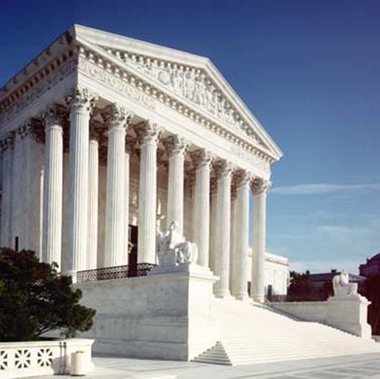Coming to you next week from SCOTUS: Zubik v. Burwell

by Robin Dorner
Editor in Chief
Is submitting a one-page opt-out form a substantial burden on an organization's religious freedom? Only the Supreme Court can answer that which is what is on slate for SCOTUS this week.
The issue in Zubik v. Burwell: Whether the HHS contraceptive-coverage mandate and its “accommodation” violate the Religious Freedom Restoration Act (RFRA) by forcing religious nonprofits to act in violation of their sincerely held religious beliefs, when the government has not proven that this compulsion is the least restrictive means of advancing any compelling interest.
“I don’t think people can realize how this affects us in our pluralistic society,” said Josh Dorner, Communications Director for SDKnickerbocker (D.C.). “It’s important to remember there is a lot of diversity in the faith community and even many people in that community agree these laws go too far.
“In Arkansas, legislature passed broad RFRA; after backlash, their Governor [Asa Hutchinson] signed narrow bill mirroring Federal law,” he added.
However, after the Kim Davis debacle, support for same-sex marriage grew among Republicans and the Kim Davis impact showed 56 percent of the general public think government officials should issue same-sex marriage licenses.
RFRA also affects women’s health issues. Employers can fire pregnant, unmarried women and refuse to cover birth control as in the Hobby Lobby case.
“Regarding the Missouri FADA Constitutional Amendment, this would prohibit penalties against those who cite a ‘sincere religious belief’ while declining to provide goods or service of ‘expressional or artistic creation’ for same sex marriage,” said Eunice Rho of ACLU National.
“Frankly I have been surprised there have not been more discussion of LGBT issues by the Democrats in Congress,” added Rho.
“I think it’s important to recognize the difference between the law and the Constitution,” concluded Dorner. “People are allowed to have their beliefs. I think we try to question people’s beliefs when we should just be talking about what it means in the context of society and our laws.”
Watch www.gayly.com later this week for the outcome on Zubik.
(*FADA – First Amendment Defense Act)
The Gayly - 3/19/2016 @ 11:39 a.m. CST





